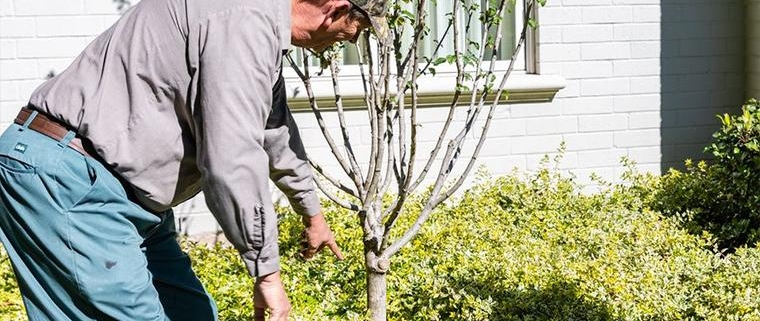Storm Readiness Includes Landscaping
Many residents work hard creating beautiful yards but living in Florida means we live with hurricanes. There is no way to completely protect your landscape from the effects of a severe storm, but there are some things you can do to minimize potential damage.
When a storm is approaching take time to mow your yard. This may seem unimportant at the time, but it will make debris clean-up easier, and you have one less thing to think about post-storm. Also, once the rain starts it may be days or even weeks before you can safely operate a lawn mower through the soggy soil and grass.
Do not prune trees and leave debris on site if a storm is imminent. It is better to take a chance and leave the tree intact if you cannot get the debris off site before the storm. Remove coconuts from coconut palm trees and harvest fruits from other trees that are mature enough to be picked. These items can become dangerous projectiles during high winds. If you have waited until the last minute, store debris in your garage or another safe place away from the wind.
Support small trees and tall plants with sturdy stakes driven at least 8-inches into the ground. You can also lay arches and trellises on the ground and anchor them with a rope. Masses of heavy vines growing on fences can pull fencing over in high winds. If the vines are extensive you may want to trim or remove them altogether.
In addition to wind damage, you may be faced with flooded areas of your yard for several days or weeks. Flooded conditions can seriously impact water-intolerant plants leading to fruit drop, wilting and root rot. Saturated soil coupled with high winds lead to uprooted trees, especially trees with shallow root systems. Do not add to the flooding. Turn your sprinkler system off. This includes irrigation systems with a rain shut-off device. You can reset your system to automatic when the soil dries out.
Clear house gutters of debris to ensure water from heavy rains has free flow. Make sure gutters are firmly attached and directing water away from the home. If there are no gutters and the water pours off the roof in a concentrated area, consider placing pavers or rocks in the runoff area to reduce soil erosion. Residents adjacent to a drainage canal should also be sure that gutters are directing water away from canals to avoid washouts and bank failure.
Before the storm arrives, check surrounding areas to ensure there are no blockages that may prevent drainage. Clear debris from areas where water will flow toward, like storm drains and swale areas. After the storm, check these areas again for possible blockages.
Making landscaping a part of your hurricane readiness plan is a great way to help protect your property and landscaping investment.



 FEMA
FEMA